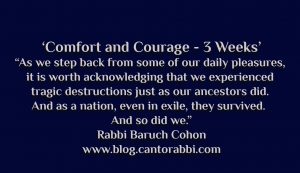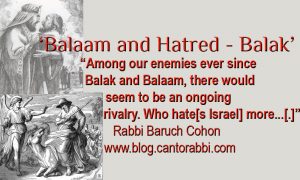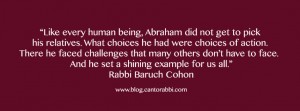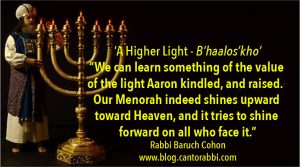COMFORT AND COURAGE – The 3 weeks – by Rabbi Baruch Cohon
Next Sunday, July 1st, will be a national holiday in Israel. But no celebrations. No bands playing, no parades. It will be a day when the observant Jews will fast from morning till night, in Israel and in all other countries too, starting a 3-week period of mourning. Because on that Sunday we will be observing Shiv’a Asar b’Tammuz – the 17thof Tammuz, the anniversary of a day when 5 historic calamities took place. And before you check your calendar, let me add that this Sunday is actually not the 17th, but the 18th. Fast days get postponed if they coincide with Shabbos.
Now about those calamities: On the 17thof Tammuz, we learn, Moses saw his people dancing around the Golden Calf, and he broke the Tablets of the Law. On the 17th, centuries later, a general of the invading Greek army burned the Torah. On the 17th, the victorious invaders set up an idol in the Holy Temple. And on the 17th, not once but twice, the wall of Jerusalem was broken – once by the Babylonian forces about 24 centuries ago, and again on the same date by the Romans in the year 70.
As we recall the reasons for our fast, our history lives with us. We begin that mourning period which will culminate on the 9thof the month of Av – also on Sunday this year, so it will be observed on the 10th– the day when both the First Temple and the Second Temple were destroyed. During these 3 weeks it is traditional not to have weddings or other celebrations, and to avoid wearing new clothes and getting haircuts. (Barbers, take a vacation!) So we remember ancient tragedies.
Can we compare this mourning to occasions like Yom haShoah– Holocaust Memorial Day? Maybe we need to. As we step back from some of our daily pleasures, it is worth acknowledging that we experienced tragic destructions just as our ancestors did. And as a nation, even in exile, they survived. And so did we.
Debates result from our observance, as we know. Should we rebuild the Holy Temple? Or should we wait for the Moshiach to arrive first? If we did restore the sacred building, and its holy altars, should we also restore the sacrificial offerings? Or can we expect the Moshiach to finalize what some of our classical religious leaders taught in the past – that t’filah bim’kom korban (“Prayer replaces sacrifice.”) Although the Torah details what and how to bring each offering, and those memories appear in every traditional prayerbook, present observance is limited to reading about them, and future observance could take a more spiritual direction, even in a rebuilt Temple.
What about those other structures that now occupy the Temple Mount? Certainly King Solomon, who got the Temple built and made it the center of his people’s faith, would not even imagine tolerating a rival house of worship on the same hill. Today’s realities can add a tear or two to our mourning time.
But we can bounce back. Our endless national experiences resound in the Haftorah that follows these mourning weeks, as we quote the prophet Isaiah encouraging us: “Comfort ye, comfort ye my people!” There is indeed comfort in knowing, wherever we find ourselves now, that our people have a home in Jerusalem again. Dangers persist, there and elsewhere. We have the courage to deal with them. We know we must combat slander and evil, and build a bright future. These weeks should remind us that we can do it.







